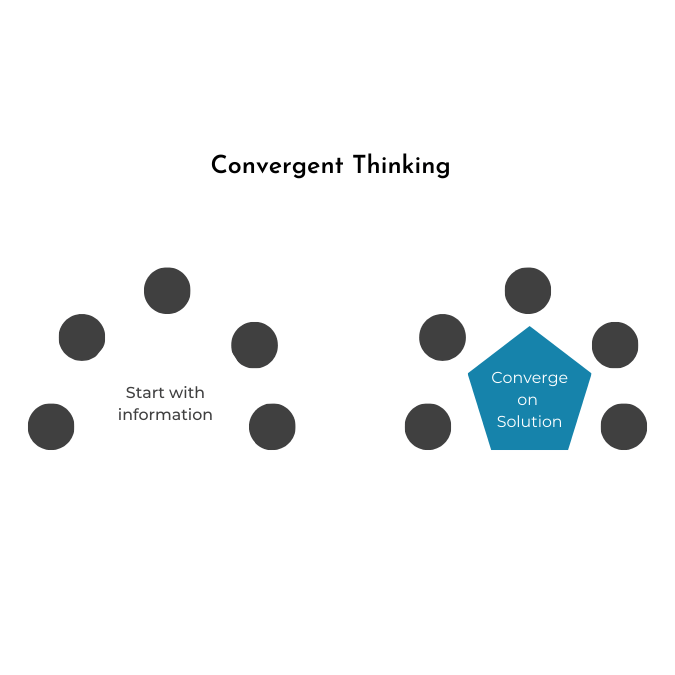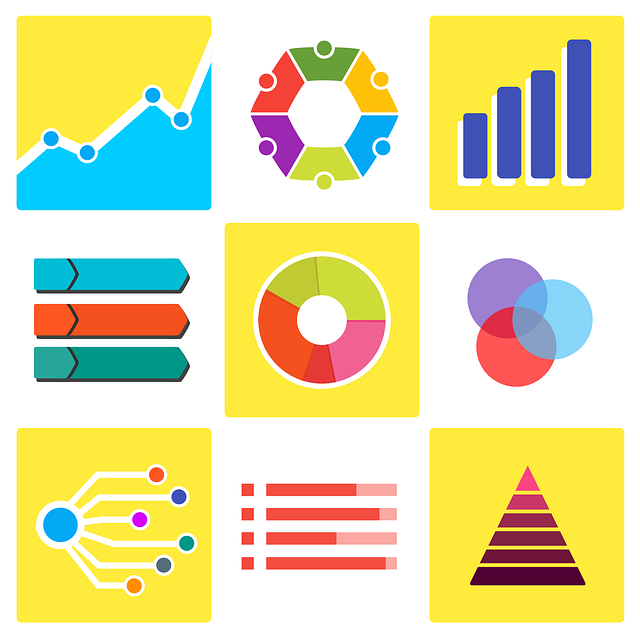
Thinking is defined as a never-ending process. Our mind is always busy thinking about some conditions and situations. Many of us keep this thought process limited; however, many others become over-thinkers. However, all this determines your functional efficiency or ability to think. Different types of thinking that a person follows also affect their choices, lifestyle, and perceptions.
Studies reveal that an ideal brain is expected to absorb a huge amount of information within very less time, can support speed reading, and can extract even minute details from scenes. We all have such super brains up to some extent. But we cannot have every possible intelligence like superman. There are some default types of thinking that people can have, and it decides a lot about their personality. In order to know what kind of thinking you possess, you may first need to understand different types of thinking styles. This information may help you to unleash your abilities while accessing your super-intelligence.
If you are also interested to know your default types of thoughts, spare some time to go through the details below. This information may help you gather relevant information on various types of thinking along with tips to gain expertise in a specific style.
Different Types of Thinking Styles Found in People

Types of Thinking – Sark Labs
It is important to mention that here we are going to talk about types of thinking in psychology, not methods of thinking. The analysis below will introduce you to different types of thinking that people can possess. Also, it is important to mention that a person can have more than one type of thinking process as it is influenced by different skills and situations. Here we are going to talk about the seven most important modes of thinking to boost your knowledge:
Critical Thinking

Critical Thinking – Sark Labs
The critical thinking process involves careful evaluation and judgment of every situation and condition. People who follow critical thinking habits are likely to put more emphasis on the accuracy, authenticity, worth, value, and validity of something. Instead of simply breaking down the available information into tiny process-able parts, critical thinkers are observed to explore a few other relevant elements also that may have affected conclusions.

Critical Thinking – Sark Labs
Critical thinkers give a deep thought to every situation. They work on the statistics, factors, and analysis before giving a green signal to it. For instance, if you come to know that a person is angry with you, this thought may accuse you of behaving in a different way to them. But a critical thinker in this situation may allow more time to listen, understand and analyze the situation before responding to that angry person in any way. With this careful processing of information, people who follow various types of critical thinking can have better suggestions for the problems and may also find a relevant element of accusation.
Abstract Thinking

Abstract Thinking – Sark Labs
The ability to establish connectivity between random things and draw some conclusions that are difficult to find for others is known as abstract thinking. People who follow an abstract thinking style are usually more focused on the hidden meanings of various things so that they can establish a more effective link between experiences, events, and items. Abstract thinkers are capable enough to observe things in terms of possibilities and theories. Experts consider it a very different process in comparison to different ways of thinking. It is all about thinking out of the box to understand the basics behind everything.

Abstract Thinking – Sark Labs
The process of abstract thinking begins with symbols, and the person has the ability to perceive relevant signs and symbols more clearly. This is the main reason why different people follow different pronunciations for a few words. In order to improve abstract thinking ability, a person needs to learn various linguistic approaches. They can focus on symbols containing unique signs, alphabets, and symbols while determining different contexts and meanings. People who have better logical reasoning ability are also able to have abstract thinking nature. If you wish to build abstract thinking ability, it is good to practice visualization, logical thinking activities, game theory, learn different languages and play with unique signs.
Creative Thinking

Creative – Sark Labs
Creative thinking mainly defines the ability to innovate and conceive new ideas by simply breaking down some established theories, thoughts, procedures, and rules. The creative thinking process makes use of an out-of-the-box approach, and it motivates people to do something that they have not done earlier. This types of thinking is more useful for children as it helps them to see every situation from a new angle. The idea is to think out of the box to find the best solution to every problem.

Creative Thinking – Sark Labs
The creative thinking process makes a person very innovative, and the chances of making successful decisions increase automatically. People that have a creative mindset are likely to succeed in life as they can discover new solutions for every problem. One can improve creative thinking ability to a great extent by doing some regular exercises such as solving puzzles, writing the same things in different ways, practicing daily life techniques, and developing new methods to handle problems. Creative thinkers can find better solutions to any problem because they put themselves in the situation to solve that.
Concrete Thinking
These types of thinkers usually prefer to apply factual knowledge in the thinking process. It involves thinking about ideas or objects in specific terms instead of just following the general or theoretical concepts. Concrete thinking is mainly about the to the point, literal and practical thought process. People who have concrete thinking usually make decisions in a particular direction. If a person follows straightforward ways of thinking to achieve a specific goal, he is known to have concrete thinking behavior.

Concrete Thinking – Sark Labs
It is important to mention that a person who follows a concrete thinking process rarely experiences confusion or disturbances to achieve specific goals. This type of thinking process is usually very useful to adults and students who are preparing for exams or are looking forward to a specific achievement in their career. Some people also call concrete thinking literal thinking. The concrete thinking habit can be improved by following some trusted methods such as keeping the specific goal in mind, avoiding distractions, focusing on a single thing at a time, asking numerous questions, and having some characteristics of analytical thinking.
Convergent Thinking

Convergent Thinking – Sark Labs
The unique process of combining a specific number of ideas or perspectives to find a single solution. It is observed that convergent thinkers generally target possibilities and then come up with a reliable solution. You can consider this thinking process more like a multiple-choice question in an exam where you have four possible answers to a question, but only one out of them is right. To find the best solution to the problem, you may need to follow a convergent thinking process.

Convergent Thinking – Sark Labs
One of the best examples of convergent thinking was observed by the ISRO team during the Mars Mission, where they had a very limited number of resources to achieve their mission, but the scientists took it as a challenge, and they developed the most feasible solution to handle the situation. They used all available resources in a most extraordinary manner with convergent thinking. This process can be achieved by practicing a linear thinking approach in day-to-day life. The idea is to focus on the available number of resources and use every limitation in a constructive way to achieve the target.
Divergent Thinking
Opposite to convergent thinking, the divergent thinking process involves the exploration of an infinite number of solutions to identify the most effective one. It means, instead of setting a finite range of possibilities to converge to the answer, the divergent thinkers are likely to go far away with their thinking process. They move outwards to search for the solution and can come out with a unique ideas. Note that divergent thinking is more like a literal thinking process, and it is usually conducted in groups. By contrast, people with divergent thinking usually follow a free-flowing and spontaneous thought process.

Divergent Thinking – Sark Labs
When the thoughts are originated in a non-linear manner, a person is able to explore multiple solutions in very less time. As a result, he can also draw some unexpected connections between situations and conditions. Once the process of divergent thinking gets completed, the shortlisted information and ideas are organized to solve the problem under consideration.
Analytical Thinking

Analytical – Sark Labs
Analytical thinking is defined as the process of examining the entire problem in small parts and establishing links between those parts. People that follow analytical thinking are great problem solvers, and they follow some structured as well as methodical ways to solve tasks. As the name indicates, analytical thinking helps people to evaluate every situation with a thorough analysis. It involves in-depth research because the analytical thinkers are not satisfied with the data already available in hand.

Analytical Thinking – Sark Labs
It is believed that candidates that are more inclined toward analytical thinking are capable enough to manage issues in a more efficient manner by drawing conclusions out of their knowledge and experiences. They make the best use of all the resources to undertake complex tasks and can manage different parts of the problem in a very systematic manner.
Now you have gone through the seven different types of thinking. This information may help you to analyze what type of thinker you are. Note that it is not necessary that a person will follow only one type of thinking process; rather, it is usually a mixture of multiple thinking types to some extent.
Understanding and mastering different types of thinking can significantly enhance your cognitive abilities, problem-solving skills, and overall intellectual capacity. Whether you aim to improve your critical thinking, embrace creativity, or become more analytical, practicing these thinking styles can help you achieve your goals.
Ready to take your thinking to the next level? Join our 5-Day Intelligent Reading Masterclass and unlock your brain’s full potential today.
About the author : Rajneesh Barapatre
Share This Story.
Join our mailing list today
Insider offers & flash sales in your inbox every week.
Curabitur non nulla sit amet nisl tempus convallis quis ac lectus dolor sit amet, consectetur adipiscing elit sed porttitor lectus.

